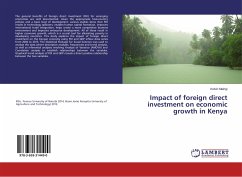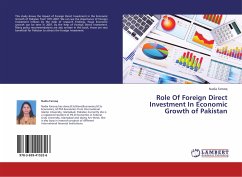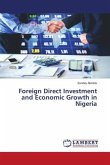The general benefits of foreign direct investment (FDI) for emerging economies are well documented. Given the appropriate host-country policies and a basic level of development, various studies show that FDI results in technology spillovers, enables human capital formation, improves international trade integration, helps create a more competitive business environment and improves enterprise development. All of these result in higher economic growth, which is a crucial tool for alleviating poverty in developing countries. This study explores the impact of foreign direct investment on the Kenyan economy using FDI and GDP inflow data series from 2004 to 2013. The Statistical Package for Social Sciences was used to analyse the data where descriptive analyses, frequencies and trend analysis, as well as inferential analyses involving Analysis of Variance (ANOVA) and Correlation analysis to establish relationships between the variables. Graphical trend analysis of FDI and GDP reveals a direct positive relationship between the two variables.
Bitte wählen Sie Ihr Anliegen aus.
Rechnungen
Retourenschein anfordern
Bestellstatus
Storno








